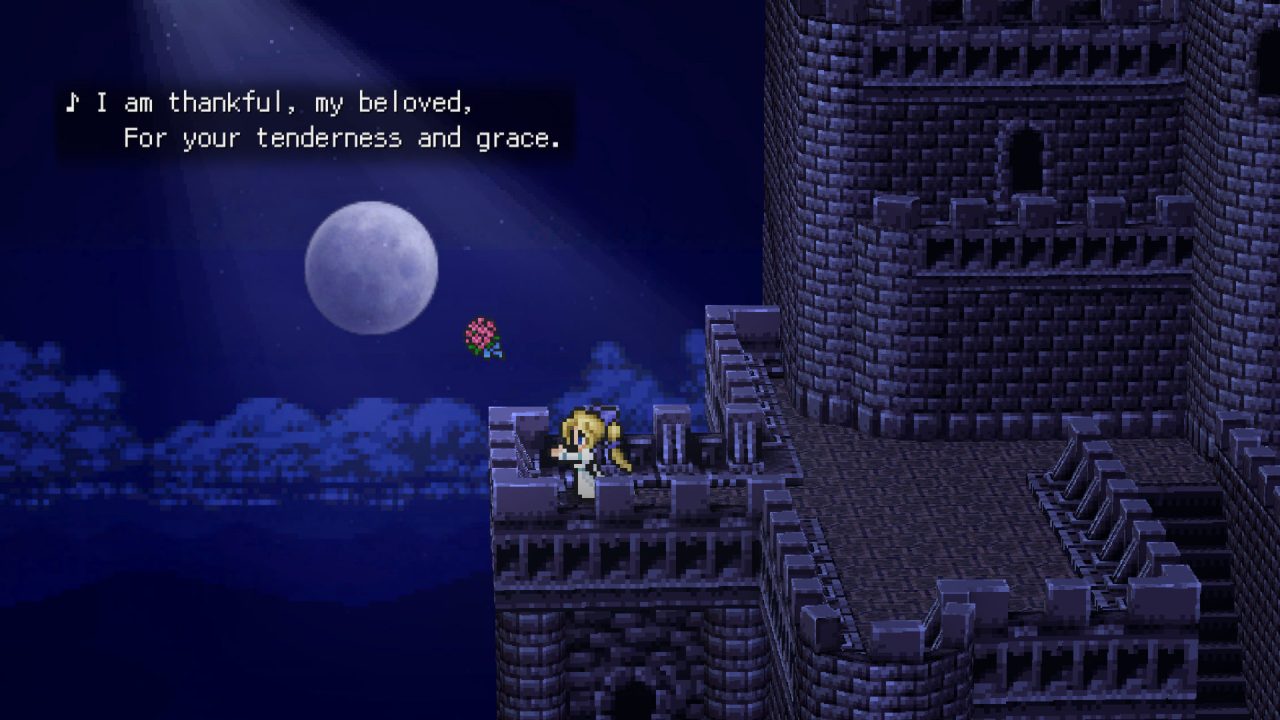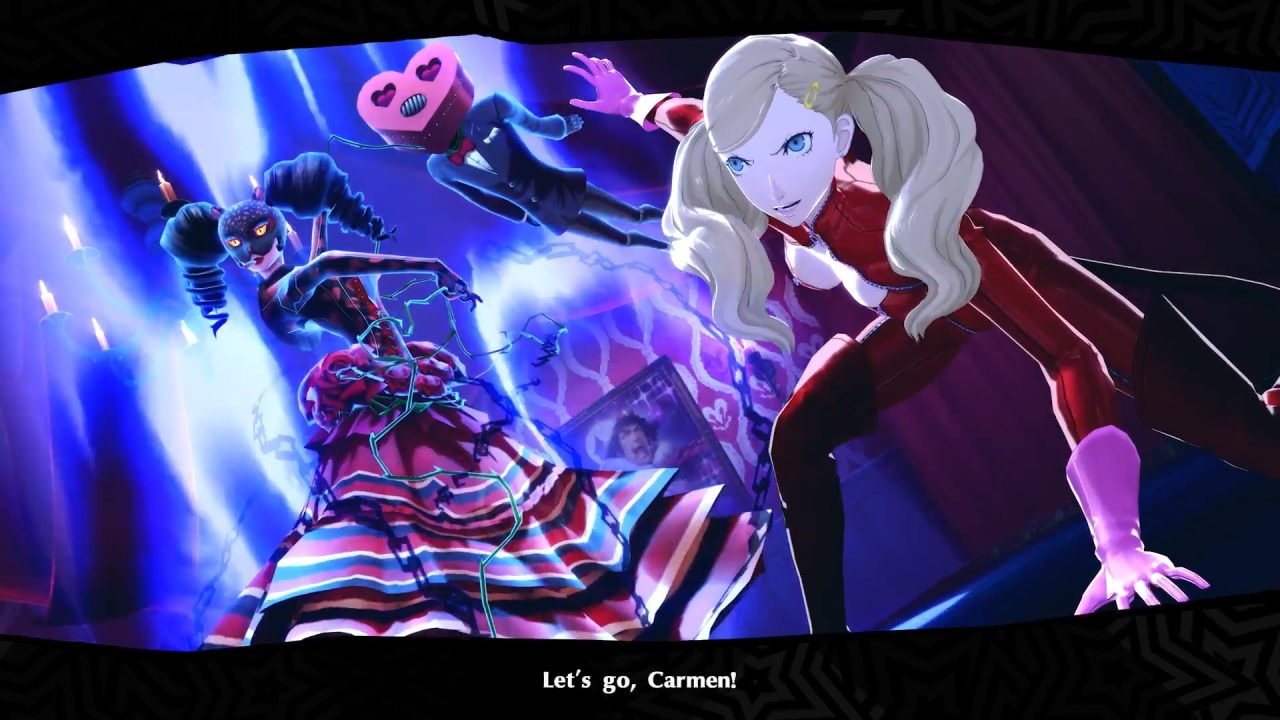1. Final Fantasy VI
There was a time when Final Fantasy VI was on the shortlist of the greatest games ever, so how could this one from my formative years not influence my tastes? Several of the 14 party members have more development and personality than most solo protagonists. In a way, I feel like in every RPG I play, I’m endlessly trying to recapture the feelings of playing through this game for the first time again. Every character plays differently, so it arguably has the deepest gameplay for the classic active turn-based combat system that was the basis for many of Squaresoft’s legendary games. And it tells the greatest love story ever told through possibly the most ambitious opera ever written for a video game (maybe?). I’ll always feel bad about letting Cid die, but at least there’s always seafood soup to fill my soul.
2. Mass Effect 2
While the dialogue/choice-driven, space sci-fi experience of Mass Effect was compelling enough, Mass Effect 2 perfected it. Though I didn’t initially love the simplification in moving away from the chunky (but admittedly clunky) heavier RPG systems, the gameplay streamlining and especially getting rid of the driving segments made the paths between those weighty conversations that much smoother. To add to the emotional investment, you can also date everyone, and though I didn’t necessarily want to do that, each companion’s side stories raised my attachment to the new and returning crew of the Normandy. It makes me wish there were more sci-fi RPGs. This was my gateway from console RPGs to CRPGs. This was BioWare at its peak in my opinion, and it’s another one where I’m always wishing I could find something that recaptures the magic of playing it for the first time.
3. Fire Emblem Awakening
With this entry in the vaunted Nintendo SRPG series (that was on the brink of being the last), each subsequent Fire Emblem game became a must-play for me. I’m not sure Fire Emblem Awakening is my favorite SRPG or my favorite series, but it ensured I would always come back for each new iteration. The blending of relatively simple tactical gameplay with plenty of small nuances to shake it up alongside strategic matchmaking for the gigantic roster of entertaining characters make FE:A endlessly replayable. Though I’d played and fallen away from tactical RPGs before this, FE:A was the one that finally stuck, kicking off my obsession with tactical games.
4. Persona 5
I love just about everything Shin Megami Tensei, and there are other sub-series where I prefer the demon-collecting aspect, but the characters and story of Persona 5 firmly secured my attachment to it above the others. Persona has always been in part about collecting personas, but importing the conversation system from the main series to lure them to your side made that aspect more enjoyable. Being able to explore parts of Tokyo subconsciously became a roadmap for me when I got to go to Japan. The atmosphere was a pitch-perfect recreation of the state of the real world with social media encroaching more on daily life in a volatile political environment. The interactions with Yusuke may be the funniest I can recall in a game. Of course, I’ll never turn down the friendship of a cat, and few cats have been as essential to their story as Morgana.
5. Baldur’s Gate 3
Baldur’s Gate 3 is the current-gen benchmark for me, as I instantly took the bait worm the main narrative offered, and it took hold of my mind, much like the affliction the main characters face. It wasn’t the first Dungeons & Dragons game, but at least as far as modern games go, it’s the first in a long time that puts so much creative agency in players’ hands that it nearly replicates the experience of sitting down with friends and playing through a campaign. So much care was put into the characters and world, making them all feel unique and full of life. It became the new bar for CRPGs, and if it wasn’t already, cemented Larian as one of the most essential current video game studios.
I never thought of myself as a dating sim guy. But considering four of the five have romantic relationships as an integral part of the gameplay, perhaps, even unbeknownst to myself, I’ve always really been an otome guy at heart.
Non-RPG 1: Super Mario 64
Super Mario 64 blew my 12-year-old mind. The move from 2D SNES games to a 3D space felt like it unlocked a new dimension, literally. For action games, I’m not sure how I managed to continue to enjoy playing games before the Nintendo 64 because I was absolutely horrible at them until this was released. Nintendo could have built two or three of the worlds in Mario 64, and it would have been a satisfying game with how much was packed into them. The environments felt so alive, and as you collected stars, something would be permanently changed the next time you jumped back into that painting. Besides other Mario games, no other platformers ever came close to touching what Mario 64 did. I apparently perform better in a 3D space, and Mario 64 finally allowed me to do that.
Non-RPG 2: Metal Gear Solid
Metal Gear Solid was cinema. As Super Mario 64 showed me what games could do with 3D, Metal Gear Solid demonstrated that games could be cinematic and meaningful on a deeper level. Great boss fights, fun fourth-wall-breaking sequences, solid voice acting—this was on another plane of existence when it was released. For people who hate stealth in games, I would argue that most stealth segments are bad because the game overall isn’t made for stealth. But Metal Gear Solid is, and there’s a significant difference. It was a thoughtful counter-logic to typical video games at the time to reward you for killing as few enemies as possible. I do admit, I could have done with less pee. You could argue that without Metal Gear Solid, we’d never have Death Stranding, and I’m not sure if that’s a good thing or a bad thing.





